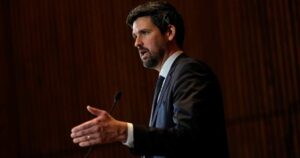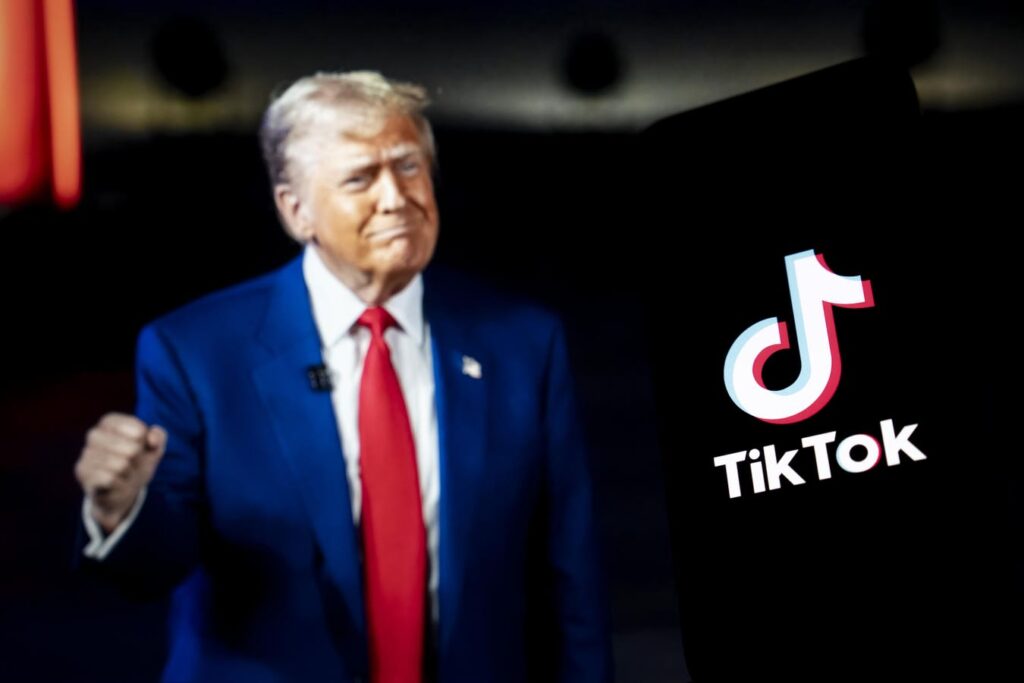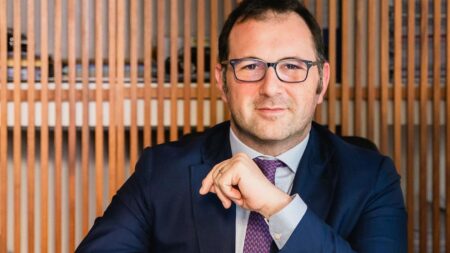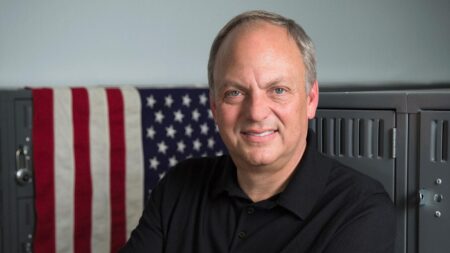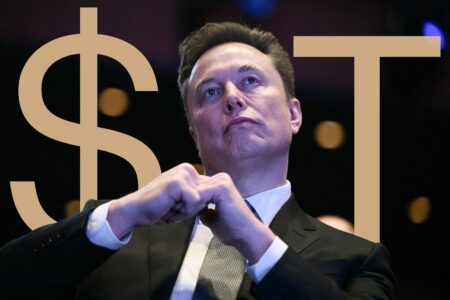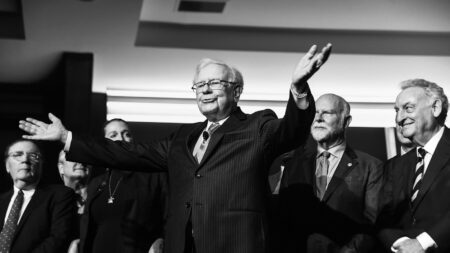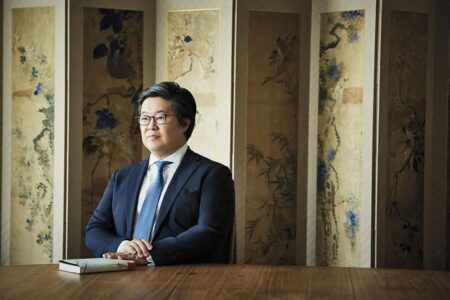By Phoebe Liu, Thomas Gallagher, Monica Hunter-Hart, John Hyatt and Chase Peterson-Withorn.
TikTok is here to stay. President Trump signed an executive order on Thursday that paves the way for the social media app to remain available in the United States. The business, which had been facing a ban in the U.S. following a bipartisan law passed in 2024 to limit its Chinese ownership, will be taken over by a consortium of mostly American investors.
“It’s run by American investors and American companies, great ones, great investors. The biggest, you don’t get bigger,” Trump said from the Oval Office after signing the order Thursday, claiming that there will be fewer data and privacy concerns because it’s going to be run by “people that love the country.”
The full roster of TikTok’s new U.S. owners will be revealed “in the days to come,” according to Vice President JD Vance, but it’s believed to be a who’s who of U.S. billionaires, many of whom have close ties to Trump and to each other. Software giant Oracle, private equity firm Silver Lake and MGX, an AI-focused investment firm established by the government of Abu Dhabi, are expected to own around 45% of the new TikTok. Trump also mentioned the involvement of Michael Dell and Rupert Murdoch from the Oval Office on Thursday. ByteDance—TikTok’s Chinese parent company—is expected to retain 19.9% ownership, while a broader group of investors including existing ByteDance shareholders (KKR, Sequoia and Susquehanna), is believed to be taking the remaining 35%. The deal values the U.S. operations of TikTok (minus its lucrative algorithm) at around $14 billion, less than its $22 billion in estimated 2024 revenue.
The biggest face of the deal, besides Trump himself, is Larry Ellison, the cofounder of Oracle and the world’s second richest person. Trump said Oracle is “playing a very big part” in the deal, including Oracle taking a rumored 15% share and being the app’s “security provider.” It’s a marriage of interests between Ellison and Trump. Oracle gets a lot of business from government contracts. Plus according to a regulatory filing, its “revenues and profits would be adversely impacted” if Oracle can’t keep managing the data and infrastructure of TikTok’s U.S. operations, which represent an estimated 15% of ByteDance’s business. Trump, for whom image is king, certainly has much to gain from a social media app owned by someone who’s friendly with him. The president also owns somewhere between $32,000 and $130,000 in Oracle shares, per his latest financial disclosure, which would make Trump—like all Oracle shareholders—technically a small, indirect owner of TikTok.
“If you had an absolute monopoly, what would you think of anything that threatened that monopoly? Those with the most have the most to lose,” Ellison once told Forbes in 1996, speaking of then-dominant Microsoft. Now Ellison and his own software firm appear to be buying up as many bits of the technology and media markets as he can, from Paramount (and perhaps Warner Bros.) to stakes in X and potentially TikTok.
Another rumored major investor in the deal is Abu Dhabi-based MGX, an AI-focused investment firm backed by the United Arab Emirates’ sovereign wealth fund. Like the others, MGX has a connection to Trump. The firm announced a $2 billion investment in crypto exchange Binance in March, funded using $2 billion of USD1, the stablecoin created by Trump’s World Liberty Financial. The decision to use USD1 helped give the president’s coin legitimacy and scale, swelling its market cap and allowing the president to generate interest on the MGX deposits. MGX also partnered with Silver Lake in a majority buyout of Intel’s Altera unit earlier this month.
It remains unclear what exactly will happen to the one-third or so of the new U.S. TikTok that will be owned both by existing ByteDance investors and new shareholders, to what extent that shareholding might mirror ByteDance’s existing ownership structure or whether any cash will change hands in that part of the deal. What we do know is that the other billionaires involved in the transaction—Ellison’s right-hand woman, Oracle executive vice chair Safra Catz; private equity firm Silver Lake’s managing partners Egon Durban, Greg Mondre and Kenneth Hao; and Abu Dhabi-based MGX—have deeply entrenched relationships with Ellison, Trump and each other. In some ways, the deal is decades in the making.
Here’s a look at the web of billionaires who are expected to control the new U.S. TikTok.
Larry Ellison (estimated net worth: $352 billion)
The TikTok deal is supposed to make it harder for the Chinese government to spy on U.S.-based users. But what about the U.S. government? Ellison’s relationship with the government stretches back nearly 50 years. The CIA was Oracle’s first customer in 1977, and Ellison advocated for “a national security database combined with biometrics, thumb prints, hand prints, iris scans or whatever is best can be used to detect people with false identities” in a 2002 op-ed. Ellison hasn’t directly donated much to Trump’s campaigns—he hosted a fundraiser for Trump in 2020 but bankrolled Tim Scott in 2024—but his relationship with the president is longstanding and amicable.
In January, Ellison showed up at the White House to help Trump announce his $500 billion Stargate AI infrastructure initiative, which appears to include a $300 billion cloud deal between Oracle and OpenAI, according to The Wall Street Journal. That month, Trump also told reporters that he would support an Ellison-led deal to buy TikTok. Oracle’s previous bid to buy the app, which would have given it a 12.5% stake, failed in 2020. It’s possible that Ellison would be open to making TikTok Trump-friendlier, given that he’s promised an overhaul of Paramount-owned CBS—potentially seeded by Skydance’s vow to end diversity, equity and inclusion programs.
Michael Dell ($138.7 billion)
Dell has never donated directly to Trump, but his company Dell Technologies provides hardware and software for Oracle to run its cloud applications—a partnership (and friendship) with Ellison that began over 20 years ago after their two companies first partnered. Dell, who started his company out of his garage in Texas back in 1984, is also tight with Egon Durban and Silver Lake. The buyout firm helped finance his 2013 leveraged buyout of his then publicly-traded company in a deal that reaped billions for Dell, Durban and Silver Lake.
Jeff Yass ($65.7 billion), Arthur Dantchik ($16.3 billion), Joel Greenberg ($2.9 billion)
Yass, the largest individual shareholder in market making giant Susquehanna (an existing ByteDance investor), is a libertarian and GOP megadonor who personally gave $99 million to conservative groups in the 2024 election cycle. A “Never Trumper” in 2016 who said he hoped Trump would exit politics as recently as 2022, the billionaire hopped on the Trump train around the time Congress started mooting a bill that would have forced ByteDance to divest the video sharing app, a situation that would have been less than ideal for its American backers, including Yass and his Susquehanna cofounders Dantchik and Greenberg. Then-candidate Trump, after a meeting with Yass, spoke out against the bill last March.
Rupert Murdoch ($23.8 billion)
News Corp, the parent company of Fox News, is said to be joining TikTok’s ownership group, in a move that will raise questions about whether the MAGA-friendly television network will gain preferred distribution status on TikTok’s feed. New Corp.’s controlling shareholder, Murdoch was touted in Trump’s Oval Office signing as being an investor in the deal. Meanwhile, Trump is suing Murdoch and New Corp’s The Wall Street Journal after the newspaper reported on a letter apparently written by Trump to Jeffrey Epstein.
Henry Kravis ($16 billion), George Roberts ($17.4 billion)
KKR, the publicly traded private equity giant they cofounded, initially invested in ByteDance through its Greater China Private Equity team in a 2018 fundraise that valued the social media giant at $75 billion. KKR now reportedly owns around 2% of ByteDance but does not hold any seats on its board. It’s unclear how KKR’s stake will be impacted by the new U.S. deal. Kravis, a Trump supporter, was at one point floated as a potential pick for Secretary of the Treasury.
Neil Shen ($3.8 billion)
Shen, who serves on ByteDance’s board of directors, is the founding and managing partner of HongShan, the Chinese investment firm that spun out of Sequoia Capital in 2023. Sequoia first became involved with TikTok parent company ByteDance in 2014, when HongShan (then Sequoia China, led by Shen) invested in its Series C funding round. HongShan took an initial 10% stake in the company at a $465 million valuation and has since invested in several subsequent funding rounds. The firm reportedly still owns just over 10% of ByteDance; it’s unclear how its stake could be impacted by the new U.S. deal.
Safra Catz ($3.3 billion)
Oracle’s CEO from 2014 until Monday (when she shifted to executive vice chair), Catz has supported Trump through most of her tenure at the software giant. She served on Trump’s 2016 transition team and donated $1 million to a pro-Trump PAC in 2024. Catz was among the tech executives who attended Trump’s White House dinner in September, where she said what Trump is doing is “making it possible for America to win.”
Egon Durban, Greg Mondre, Kenneth Hao ($2.3 billion each)
Tech-focused private equity firm Silver Lake’s billionaire managing partners— Durban, Mondre and Hao—have donated to both Democratic and Republican causes, per FEC filings, but never to Trump or his PACs (Mondre gave to Joe Biden during the 2020 election). Yet they have connections to the president through their portfolio. In 2016, Silver Lake bought into UFC, the mixed martial arts organization headed by Trump pal Dana White, who helped the president coordinate his numerous “manosphere” podcast appearances during the 2024 election. Durban currently serves on the boards of UFC parents TKO Holdings and Endeavor Holdings, the latter of which he chairs.
Silver Lake also has preexisting relationships with several of the other TikTok investors. The firm is a major investor in Dell Technologies, owned by Michael Dell (see below), and helped finance its $24.9 billion buyout to go private in 2013. Durban sits on Dell’s board. Silver Lake and KKR (below) have partnered on many deals. And the firm has historical ties to Oracle; Silver Lake cofounder David Roux (who’s no longer with the company) was an Oracle VP in the 1990s and recently said he had a “really good relationship” with Ellison.
Another thread in the web: The Abu Dhabi sovereign wealth fund Mubadala owns a minority stake in Silver Lake, and in recent years, Mubadala has made investments in partnership with both Dell and the private equity firm of Trump’s son-in-law, Jared Kushner.
This won’t be Silver Lake’s first foray into social media. The firm invested $1 billion in Twitter in 2020; Durban then joined the board and approved Elon Musk’s purchase of the platform two years later, when Ellison also put in $1 billion.
Marc Andreessen ($2 billion)
The Silicon Valley legend got rich as an early backer of Instagram, Oculus VR and Facebook. He was one of Trump’s largest VC backers in the 2024 election. In December 2024, Andreessen said he was spending “half” his time at Mar-a-Lago advising Trump on tech and economic policy for his second term. Then he was hired as a self-described “unpaid intern” at the Department of Government Efficiency, where he helped interview and recruit candidates for the Musk-led cost-cutting initiative. He donated $4.5 million to Right For America, a pro-Trump super PAC, in late 2024 and gave $3 million to super PAC MAGA Inc., in early 2025. It’s unclear if Andreessen would be investing in TikTok personally or through his firm, Andreessen Horowitz.
Read the full article here



